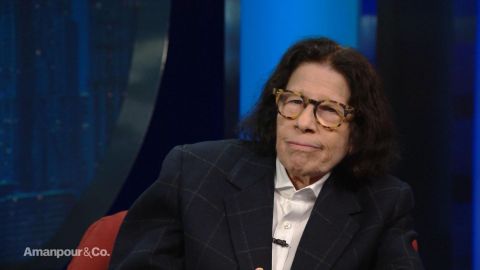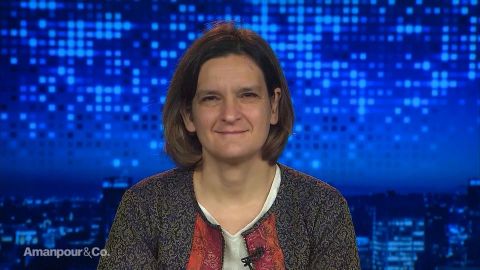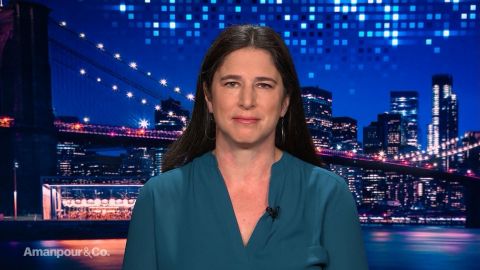Read Transcript EXPAND
CHRISTIANE AMANPOUR: So, you caused quite a lot of waves. You’re one of the rare, if not the rarest of objects, which is a female Nobel economic laureate and you are very, very young for this prize. Tell me, does any of that matter to you? Does it make a difference to be female and young in this particular discipline at this particular time?
ESTHER DUFLO, NOBEL PRIZE-WINNING ECONOMIST: It feels a little bit isolating in general in the discipline just because there are so few women in economics and so few, in particular, winning things like Nobel prizes. But it feels wonderful as well that it is tempting. And I’m certainly hoping that I will be a trailblazer and many more will follow.
AMANPOUR: And I’m wondering whether, given that you have devoted your career to trying to identify the causes and the solutions to structural poverty, has being a woman opened your eyes in the economic field differently, do you think, than had come before?
DUFLO: Well, I think that’s a very interesting question, because if you look at the field that I’m working on, the field of global poverty and development, it’s probably one field within economics where you have about an approximate gender balance, where there is about has many men and women. And I think that reflects the fact that women tend to be interested in those subjects, more than, you know, finance or the macroeconomy or even hybrid theory. So, certainly, there is an interest of many women and many younger people into, you know, how people live their lives and how to make these lives better. And also, there is maybe both in my work and that of many women in this field, the idea that, look, we don’t have to be ashamed of being interested in those topics. They are the most important topic we should be thinking about and we can, you know, welcome those.
AMANPOUR: So, you’ve been working on them. What have you found in your fight against global poverty and has it got better or worse since you started? I know that’s a big question. But just give me the broad picture for the moment.
DUFLO: So, the broad picture, if you want it in one word, is that it’s gotten better. It’s gotten much better. Now, if you look at world poverty and you just look at what happened since 1990, infant mortality has been divided by two, maternal mortality has been divided by two, the number of people living in extreme poverty has gone down by hundreds of millions. So, clearly, there has been a tremendous progress. And there also has been a bit more willingness to be pragmatic about those issues.
About This Episode EXPAND
New York Magazine writer Rebecca Traister speaks to Christiane about Elizabeth Warren, Amy Klobuchar and the power of women’s anger. Nobel Prize-winning economist Esther Duflo debunks several economic theories and discusses the role of women in the her field. Writer and social commentator Fran Lebowitz sits down with Walter Isaacson to give her take on 2020’s swirling political current.
LEARN MORE


